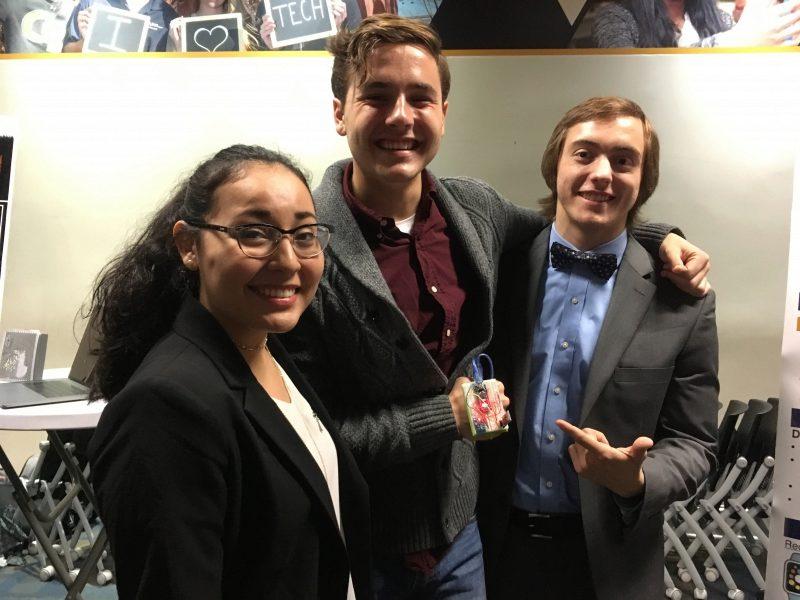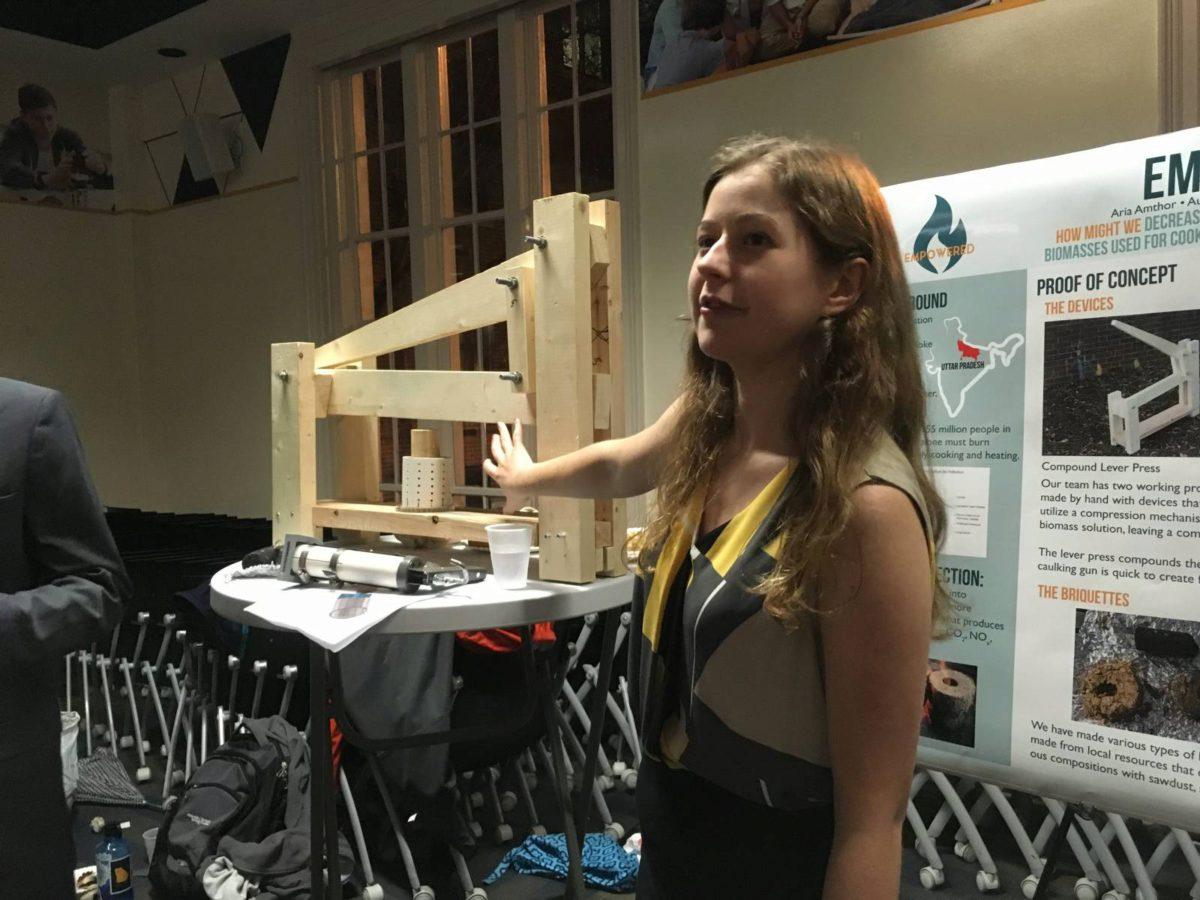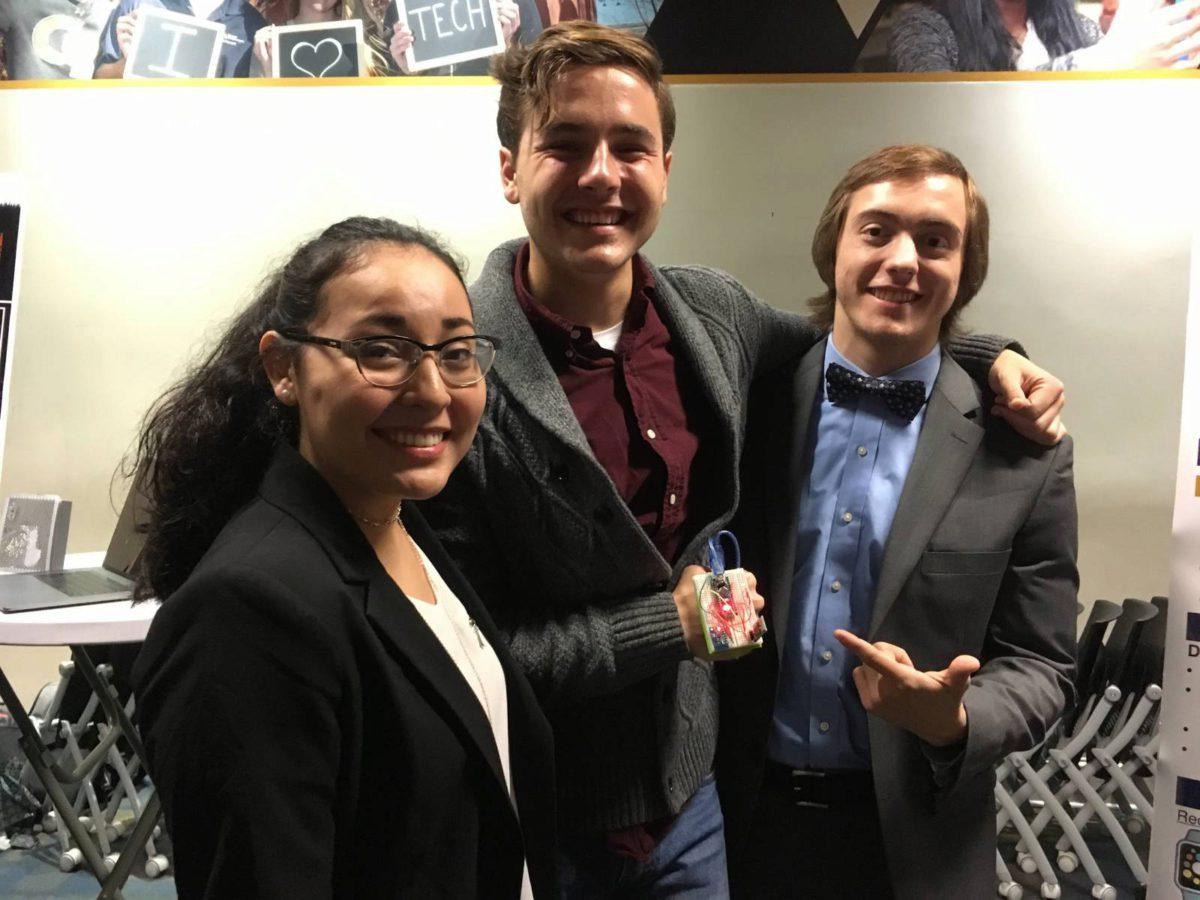
Living Learning Communities at Georgia Tech are becoming very popular. In these programs, first year students all live in the same building and take classes that focus on a particular theme: pre-health, science and math, leadership, and in this case, tackling a huge problem in order to benefit the world they live in. The intention of these programs is to foster communities and build academics and student engagement.
Students who take part in the Grand Challenges Living Learning Community are fully aware that the complex issues facing the world can seem daunting. However, those in the second year of this program not only have a bright idea that they think might improve the lives of the people around them, they have already started to put their idea into action.
Last year, 110 students in the Living Learning Community organized themselves into groups based on their passions, whether it was energy conservation, infrastructure development, agriculture, education or another area of interest. They spent their freshman year doing research to investigate where exactly their help was most needed and coming up with an idea to confront the issue.
Some groups had an idea that was deemed viable enough to create real, effectual change, and they continued on to their sophomore year and began to design and experiment with possible solutions.
A recent poster session allowed students to show off their solutions. Ten groups gathered in Brittain Rec, the space dedicated to the work of the Grand Challenges students. Each team of about six members had decided that they wanted to begin implementing their big idea and all had some prototype to display as a representation of the work they had done so far, which was a result of extensive research and testing.
“This semester was all about building, experimenting, and creating a solution that really gives feasibility to the students’ ideas,” said Jeff Davis, associate professor in the School of Electrical and Computer Engineering and co-director of the Grand Challenges program.
One group, which called their team “Empowered,” was working to reduce unhealthy and potentially deadly inhalation of particles caused by the burning of unclean biofuel in rural communities in India. They decided that one solution would be to create biofuel briquettes that produce less smoke, a cleaner burn, and fewer deaths from smoke inhalation as a result. At the poster session, they displayed several of the briquettes they had already created with a lever-operated press that they constructed themselves.
The groups exhibited mastery of a delicate balance: the ability to choose a broad topic that they were passionate about, but also to narrow their focus to a more specific group of people that they wanted to help.
For example, one group wanted to help Parkinson’s patients, but initially wasn’t sure how. They eventually discovered that some victims of Parkinson’s disease have episodes called freezing of gait, which are usually triggered by an emotional reaction in response to a stressor and result in the loss of fine motor function and inability to continue walking. The group, called “IntOps” and composed of students from a variety of majors, combined their diverse backgrounds in engineering and other fields to create a compact device that detects when these freezing of gait episodes occur and attempt to break patients out of them.
“We found research that says about 60 percent of Parkinson’s patients experience this symptom,” said Cooper Link, a second year aerospace engineer. “With this in mind, we decided that if we could fix this problem, we would be creating a daily solution for nearly one million people.”
Many other groups had plans that were equally as ambitious. One team wanted to increase the financial literacy of foster children, and had just completed their first event, which hosted 100 foster children on campus for an educational workshop. Another was passionate about stopping human trafficking, an issue that is common especially in Atlanta’s international airport, and created an online platform that connects victims of trafficking with the resources that are available to them.
Grand Challenges groups embody the phrase that so many Georgia Tech students have come to embrace: here, we can do that.

